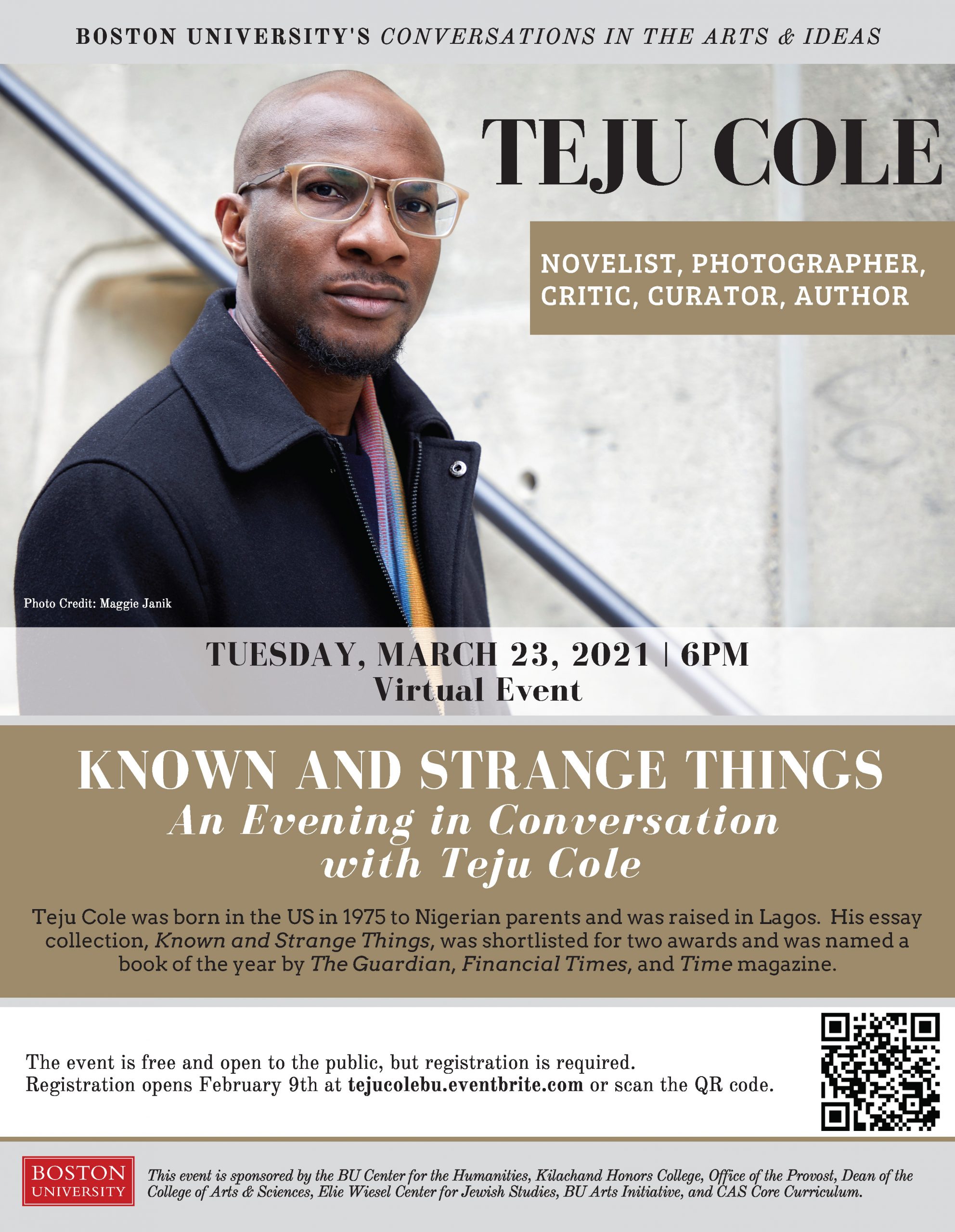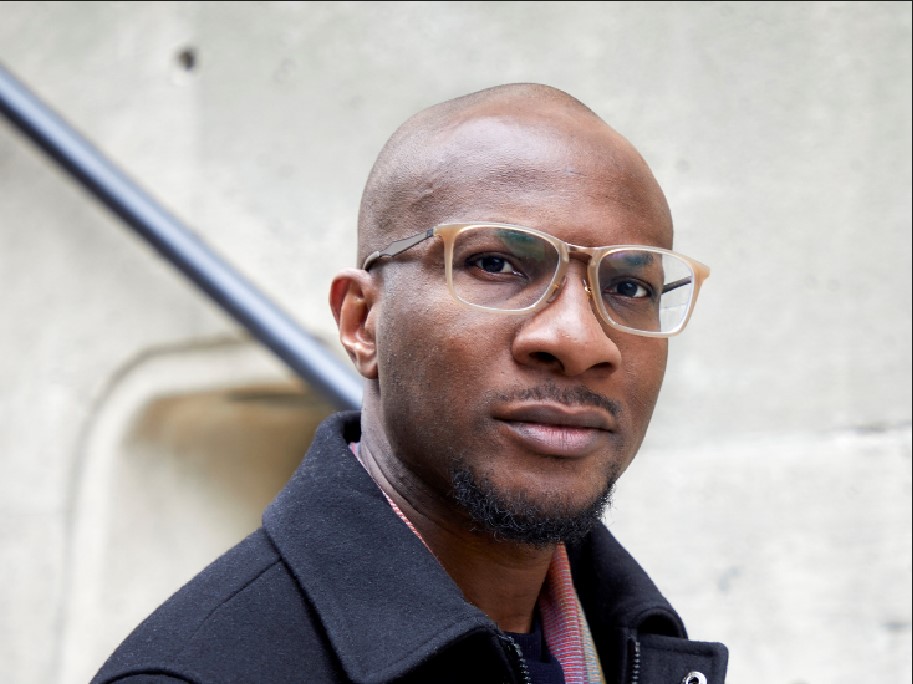
Renowned novelist, essayist, cultural critic, and photographer Teju Cole was the featured guest of the 2020/2021 Conversations in the Arts & Ideas series, sponsored by the Center for the Humanities, Kilachand Honors College, the Office of the Provost, the Arts & Sciences Dean’s Office, the Elie Wiesel Center for Jewish Studies, the BU Arts Initiative, and the College of Arts & Sciences Core Curriculum.
“Known and Strange Things: An Evening with Teju Cole” staged a wide-ranging public conversation between Cole and Crystal Williams, a poet and BU’s vice president and associate provost for community & inclusion.
In a discussion centered on Cole’s conception of the term “accompaniment,” Cole and Williams foregrounded the social contexts that shape creative production and make it possible. Being accompanied, in Cole’s view, means acknowledging one’s debt to others and the dependence of intellectual and creative practices on the work of predecessors. Cole advocated a capacious approach to aesthetic production, invoking a “forest of voices” as the source of any individually authored work.
Cole also addressed the strategic uses of polemical language in contemporary movements against racist oppression, encouraging multiple modes of critique as necessary to dismantling systems that subjugate people on the basis of identity.
The next morning, Cole met with students from Core and Kilachand who had studied his work and had prepared questions for him. In response to student concerns about our “broken” social and political order, Cole asserted that “the world will never be fixed,” but affirmed that “we have roles in repair.” In discussing the subject of canonization, he suggested that categories such as “greatness” tend to “flatten the conversation and shut it down,” instead of promoting understanding of “how canons are formed.” In sum, Cole challenged the BU community to think deeply about artistic production, reception, and context.

